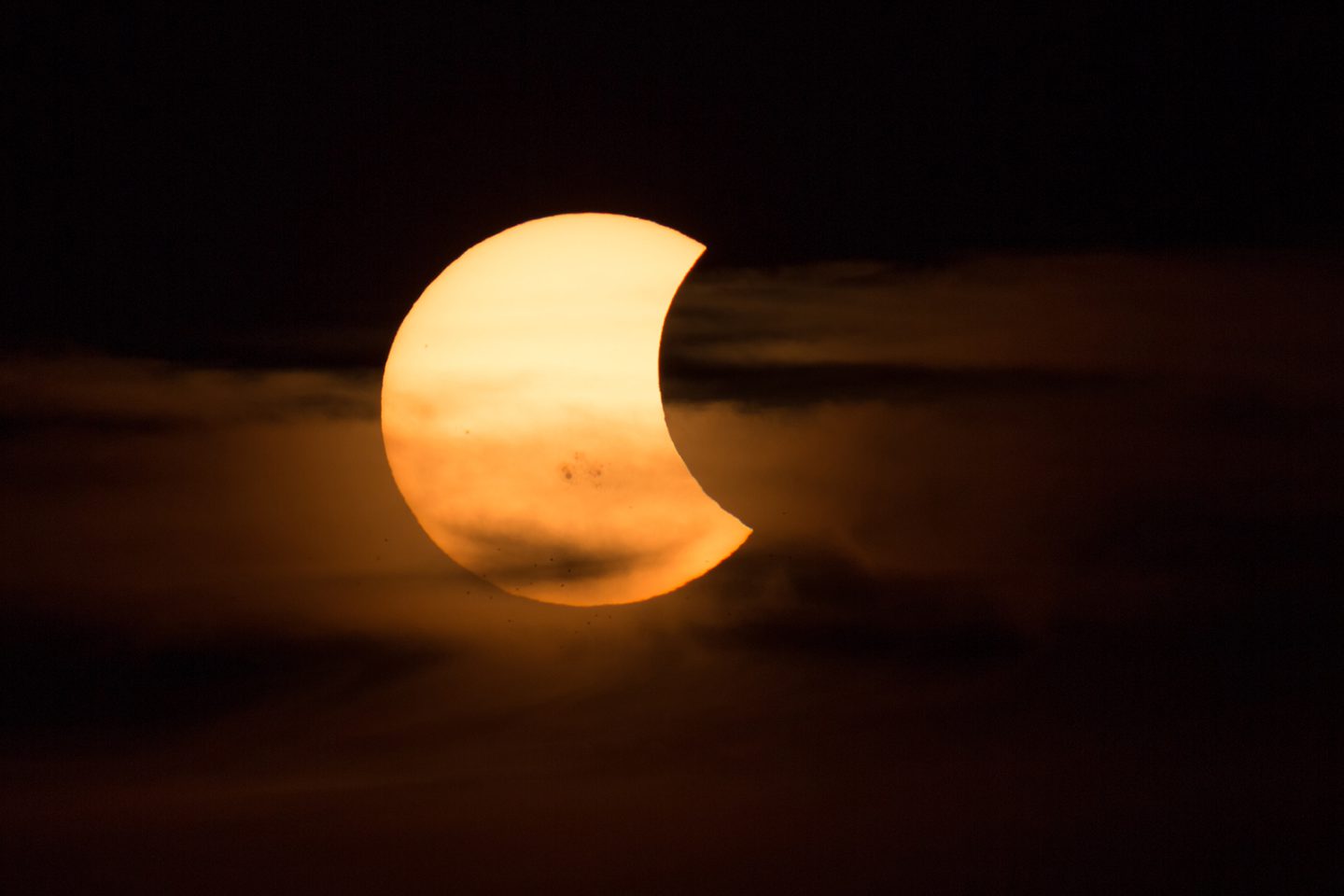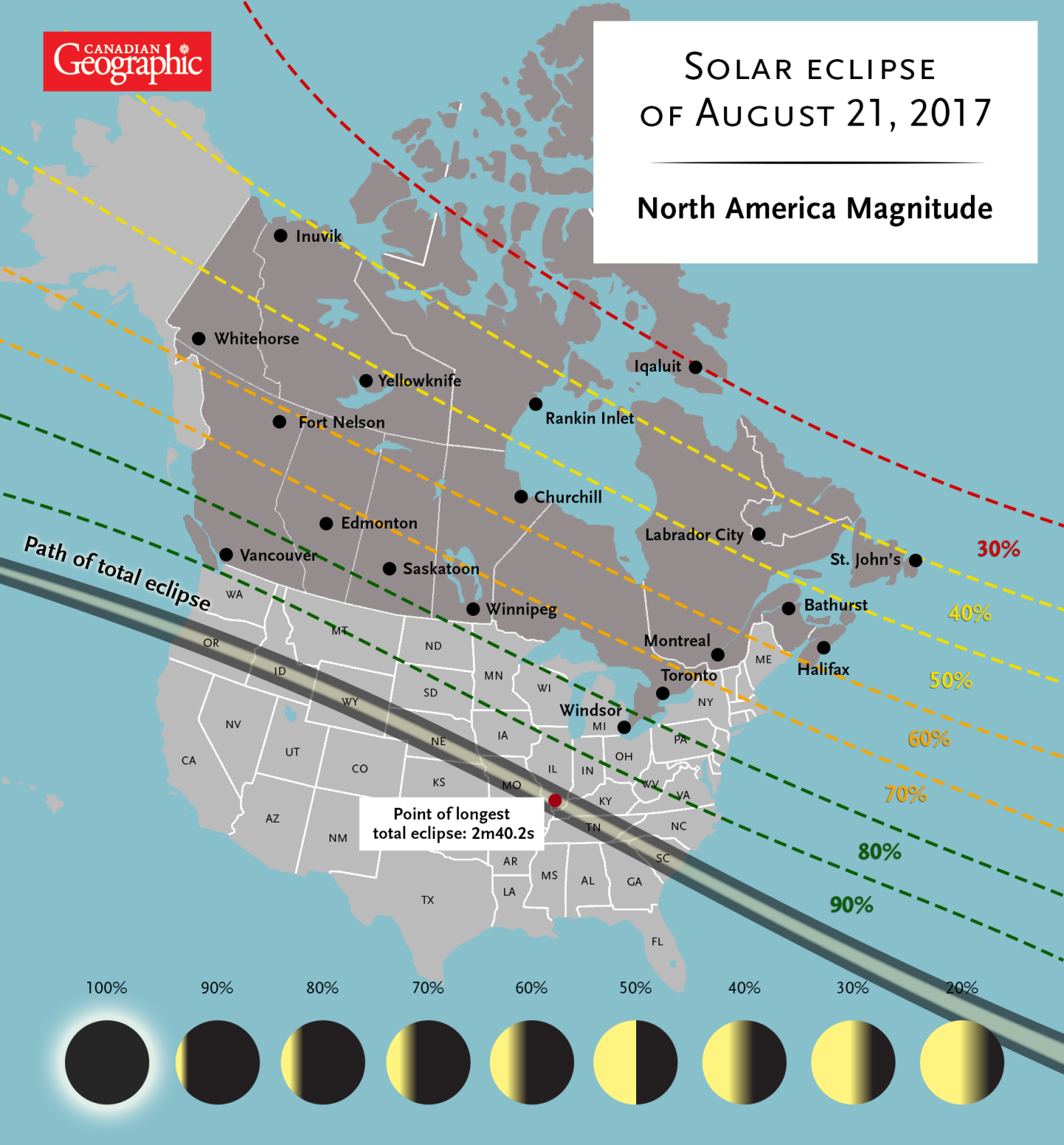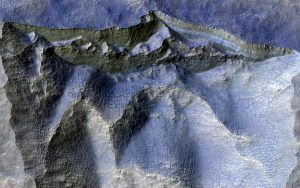
Environment
Earth’s orbit has become a cosmic landfill
Michel Doyon, manager of flight and systems operations at the Canadian Space Agency, walks us through what space debris is and its impact on Canada
- 1676 words
- 7 minutes
This article is over 5 years old and may contain outdated information.
Science & Tech

North America will witness a total solar eclipse today, but some corners of the continent will have a better view of the natural phenomenon than others.
Sadly for Canadians, the path of totality — where the sun will be completely eclipsed by the moon’s shadow for a couple of minutes — lies well to the south of us, passing through Oregon, Idaho, Wyoming, Nebraska, Missouri, Illinois, Kentucky, Tennessee, and South Carolina. It’s the first time since 1918 that a visible total eclipse will cross the entire United States, from coast to coast, so cities and towns along the path of totality are preparing for an onslaught of tourists, but if you don’t have the time or the budget to get yourself to Casper, Wyo., Idaho Falls, Idaho, or Nashville, Tenn., and still want to see the celestial event in all its spooky glory, you’re in luck.
NASA has planned a full suite of programming that can be streamed for free online, including live views of the eclipse and coverage of various related events on the ground. And, most Canadians will be able to see at least a partial eclipse (weather permitting, of course) with places like Vancouver, Lethbridge, Alta. and Windsor, Ont. positioned for about 80 per cent obscuration. The map graphic below will give you a rough idea of the predicted magnitude of the eclipse in your area:

The eclipse will begin over the Pacific Ocean at 15:46 UTC, which corresponds to 8:46 a.m. PDT, 9:46 a.m. MDT, 10:46 a.m. CDT and so on. To make the most of your viewing experience, check out a public viewing event taking place near you; many of these events will have experts, telescopes and protective eyewear on hand. Remember: never look at the sun without proper protective eyewear, and use an appropriate filter if looking through a telescope. Special solar viewing glasses can be purchased from the Royal Astronomical Society of Canada’s e-store.
Are you passionate about Canadian geography?
You can support Canadian Geographic in 3 ways:

Environment
Michel Doyon, manager of flight and systems operations at the Canadian Space Agency, walks us through what space debris is and its impact on Canada

Science & Tech
The mining industry is actively looking towards new frontiers in mining

Exploration
A conversation with Canadian astronaut David Saint-Jacques, who is getting ready to travel to the International Space Station

Exploration
The men and women that have become part of Canada’s space team